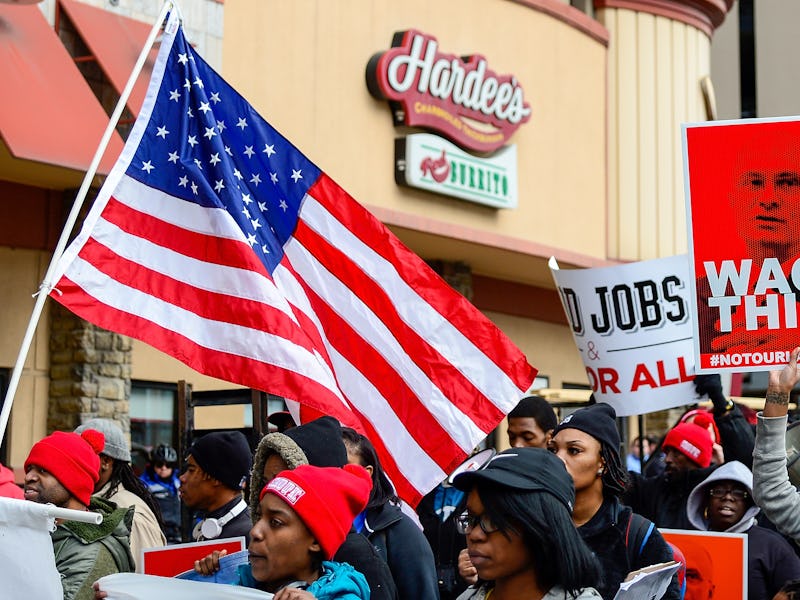
Now that Andy Puzder, President Donald Trump’s nominee for Labor U.S. Secretary of Labor, has withdrawn himself from the nomination process, America may have delayed the creep of automation, but make no mistake: it is definitely still coming.
“While I won’t be serving in the administration, I fully support the president and his highly qualified team,” Puzder said in a statement on Wednesday, announcing he was stepping down amid a flurry of accusations, including that he was an abusive husband.
However, Puzder’s love of automation is hardly unique among the modern CEO class, and there’s no reason to think that the Trump administration’s eventual replacement nominee will differ all that much. As has been pointed out, Trump’s incessant tweeting about job losses to immigrants has been accompanied by a notable lack of tweets about losses to automation. A writer at the Harvard Business Review recently dug into precisely what the incentives for that might be.
It’s also worth pointing out that nobody on the political spectrum is seriously putting forward real anti-automation legislation, like employment quotas or simple restrictions on technology. Even among progressives, the focus is on dealing with automation, not bringing it to a halt. On the podcast Pod Save America, President Obama said that he thinks American legislators “probably have to be more creative about anticipating what’s coming down the pike. Automation is relentless and it’s going to accelerate.”
What’s different about the Trump-Puzder approach is not acceptance of the inevitability of automation, but the acceptance of all the negative social consequences that may very well come with it.
Up until Wednesday afternoon, this was the mentality that was about to take control of labor policy for the entire country. There’s no reason to think that won’t still happen — even if people organize against the next nominee as well.
Protests sprang up at fast food locations, and employees of Puzder’s own companies have expressed opposition to his nomination.
Protesters hold signs as they march by a Carl's Jr. restaurant on the way to the CKE Restaurants, Inc. headquarters during a demonstration against Puzder's nomination.
Puzder sees the labor market as a source of burgers and fries — that’s it. He’s been an outspoken proponent of immigration in the past, an oddity in Trump’s White House, because it imports people who will take the low-paying jobs that keep fast food chains in business. He has not displayed any belief that employers are in any way obligated to provide more to an employee than the market is capable of forcing that employer to provide.
To some, his nomination was a sign that the new White House was serious about implementing conservative economic principles, and strengthening the economy by increasing the breadth of opportunity. To others, this view ignores the history of labor law as having grown the economy by increasing the average worker’s purchasing power.
It also fails to incorporate any conception of a minimum expectation of comfort for Americans who work full time. After all, banning child labor in 1938 also made labor more expensive, and drove employers to hire fewer people — but on the upside, all of the people employed from that point forward were adults.
Puzder’s companies have been linked to a large number of employee complaints, and there’s now a lawsuit in the works, brought by a group of fast food employees.